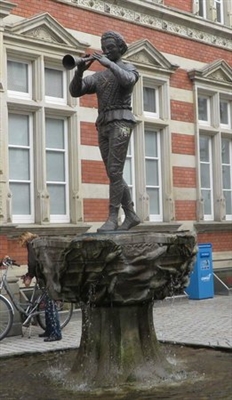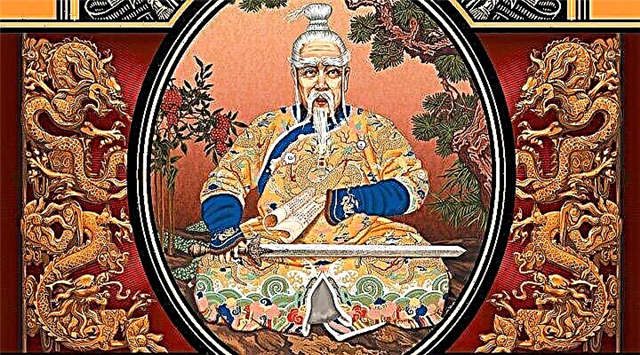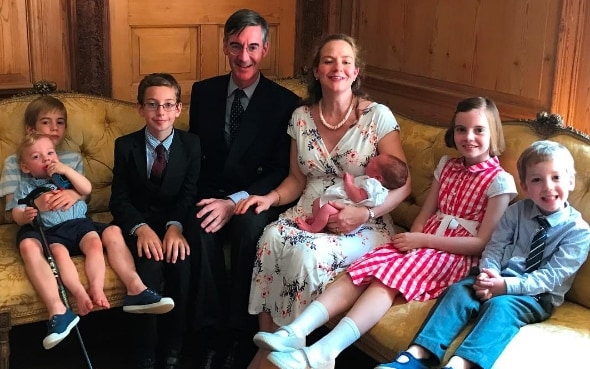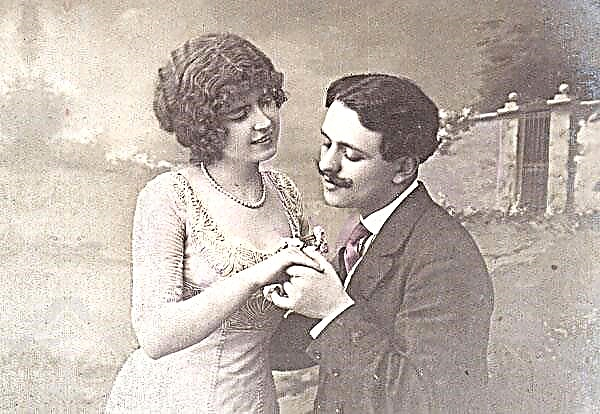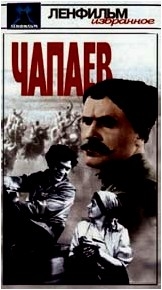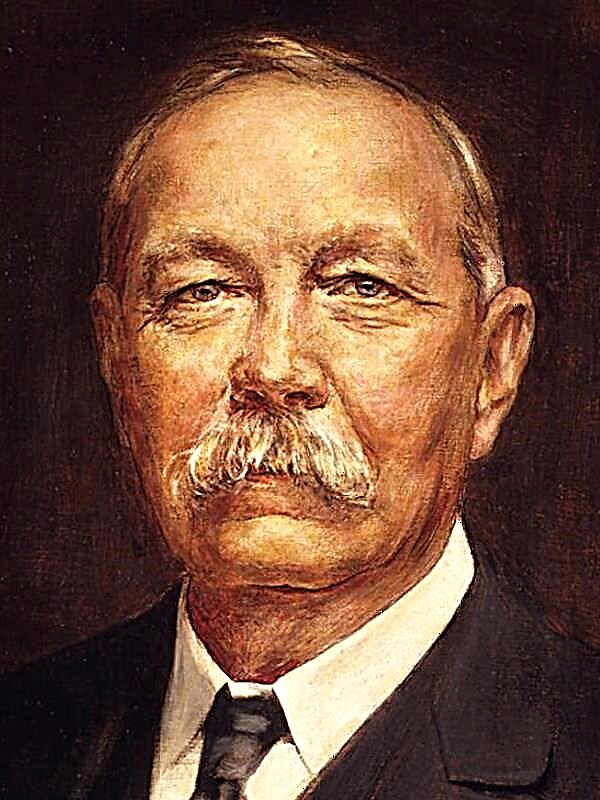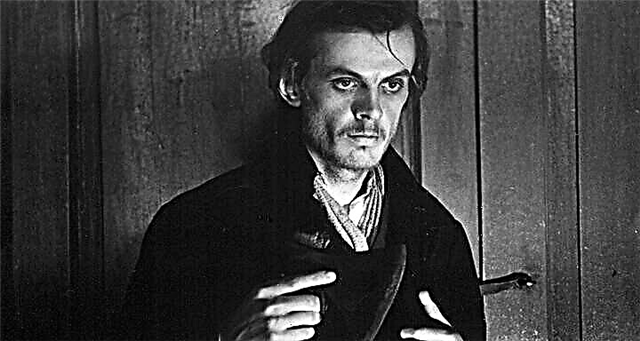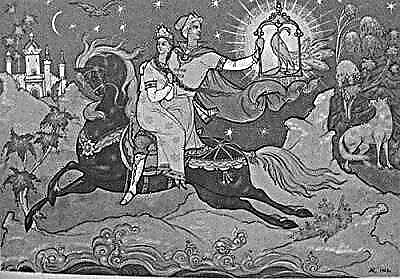The first, as usual, the news of the return of Lavretsky brought Gideonovsky to the Kalitins' house. Maria Dmitrievna, the widow of the former provincial prosecutor who, at fifty, retained a certain pleasantness in features, favors him, and her house is one of the most pleasant in the city of O ... But Marfa Timofeevna Pestova, the seventy-year-old sister of Maria Dmitrievna’s father, does not favor Gedeonovsky for his penchant addiction and talkativeness. But what to take - popovich, although a state adviser.
However, Martha Timofeevna is generally wise to please. But she doesn’t favor Panshin either - a universal favorite, an enviable groom, the first gentleman. Vladimir Nikolaevich plays the piano, composes romances in his own words, draws well, recites. He is quite a secular man, educated and adroit. In general, he is a St. Petersburg official on special assignments, a chamber junker, who arrived in O ... with some kind of assignment. The Kalitins visit him for the sake of Lisa, the nineteen-year-old daughter of Maria Dmitrievna. And, it seems, his intentions are serious. But Martha Timofeevna is sure: her pet is not worth her husband. Panshin and Lizin, a music teacher, Christopher Fedorovich Lemm, are not very tall, a middle-aged, unattractive and not very successful German, secretly in love with his student.
The arrival from abroad of Fedor Ivanovich Lavretsky is a noticeable event for the city. His story passes from mouth to mouth. In Paris, he accidentally convicted his wife of treason. Moreover, after the break, the beauty Varvara Pavlovna received scandalous European fame.
The inhabitants of the Kalitinsky house, however, did not think that he looked like a victim. From it, still steppes the health of the steppe, lasting strength. Only in the eyes is fatigue visible.
In fact, Fedor Ivanovich is a strong breed. His great-grandfather was a tough, bold, smart and crafty man. Great-grandmother, a quick-tempered, vengeful gypsy, was in no way inferior to her husband. Grandfather Peter, however, was already a simple steppe master. His son Ivan (the father of Fyodor Ivanovich) was brought up, however, by a Frenchman, a fan of Jean Jacques Rousseau: this was the order of the aunt with whom he lived. (His sister Glafira grew up with her parents.) Wisdom of the 18th century the mentor poured all over his head, where she stayed, not mixed with blood, not penetrated into the soul.
Upon returning to his parents, Ivan seemed dirty and wild in his native house. This did not stop him from paying attention to mother maid Malanya, a very pretty, smart and gentle girl. A scandal broke out: Ivan deprived Ivan of his inheritance, and ordered the girl to be sent to a distant village. Ivan Petrovich recaptured Malanyu on the road and got married to her. Having attached his young wife to the relatives of the Pestovs, Dmitry Timofeevich and Martha Timofeevna, he himself went to Petersburg, and then abroad. In the village of the Pestovs, Fedor was born on August 20, 1807. Almost a year passed before Malanya Sergeevna was able to appear with her son at the Lavretsky. And that’s only because, before his death, Ivan’s mother asked the harsh Pyotr Andreyevich for his son and daughter-in-law.
The happy father of the baby finally returned to Russia only twelve years later. Malanya Sergeyevna had died by this time, and the aunt Glafira Andreevna was raising the boy, ugly, envious, unkind and domineering. Fedya was taken from his mother and handed over to Glafira during her lifetime. He did not see his mother every day and loved her passionately, but vaguely felt that there was an indestructible barrier between him and her. Aunt Fedya was afraid, did not dare to utter a word with her.
Upon returning, Ivan Petrovich himself began to educate his son. He put on his Scottish clothes and hired a doorman. Gymnastics, natural sciences, international law, mathematics, carpentry and heraldry formed the core of the educational system. They woke the boy at four in the morning; dousing with cold water, forced to run around a pole on a rope; fed once a day; taught to ride and shoot from a crossbow. When Fede was sixteen years old, his father began to cultivate contempt for women in him.
A few years later, having buried his father, Lavretsky went to Moscow and at twenty-three years entered the university. Strange education has borne fruit. He did not know how to get along with people, not a single woman dared to look in the eye. He only got along with Mikhalevich, an enthusiast and poet. It was this Mikhalevich who introduced his friend to the family of the beautiful Varvara Pavlovna Korobina. A twenty-six-year-old child only now understood what it was worth living for. Varenka was charming, intelligent and decently educated, could talk about the theater, played the piano.
Six months later, the young arrived in Lavriki. The university was abandoned (not to marry a student), and a happy life began. Glafira was removed, and General Korobin, daddy Varvara Pavlovna, arrived at the place of the ruler; and the couple drove off to Petersburg, where they had a son, who soon died. On the advice of doctors, they went abroad and settled in Paris. Varvara Pavlovna instantly settled down here and began to shine in society. Soon, however, Lavretsky fell into the hands of a love note addressed to his wife, whom he so blindly trusted. At first he was seized with rage, the desire to kill both (“my great-grandfather was hanging on my ribs”), but then, having disposed of a letter about his wife’s annual financial support and General Korobin’s departure from the estate, he went to Italy. Newspapers circulated bad rumors about his wife. I learned from them that he had a daughter. Indifference to everything appeared. And yet, four years later, he wanted to return home to the city of O ..., but he did not want to settle in Lavriki, where he and Varya spent the first happy days.
Lisa from the very first meeting attracted his attention. He noticed near her and Panshin. Maria Dmitrievna did not hide that the junk chamber was crazy about her daughter. Marfa Timofeevna, however, still believed that Lisa should not be behind Panshin.
In Vasilievsky Lavretsky examined the house, the garden with a pond: the estate managed to run wild. The silence of an unhurried secluded life surrounded him. And what strength, what health was in this inactive silence. The days went monotonously, but he did not get bored: he was engaged in farming, riding, reading.
Three weeks later I went to O ... to the Kalitins. I found them Lemma. In the evening, having gone to see him, he lingered with him. The old man was moved and admitted that he writes music, played something and sang.
In Vasilievsky, the conversation about poetry and music quietly turned into a conversation about Lisa and Panshin. Lemm was categorical: she does not love him, she just obeys her mother. Lisa can love one beautiful, but he is not beautiful, i.e. his soul is not beautiful
Lisa and Lavretsky increasingly trusted each other. Not without embarrassment, she once asked about the reasons for his break with his wife: how can one break what God has connected? You must forgive. She is sure to forgive and obey. This was taught to her as a child by the nanny Agafya, who told the story of the life of the pure virgin, the life of saints and hermits, who led to the church. Her own example brought humility, meekness and a sense of duty.
Suddenly Mikhalevich appeared in Vasilyevsky. He grew old, it was evident that he was not succeeding, but he spoke as ardently as in his youth, read his own poems: "... And I burned everything that I worshiped, / Worshiped everything that I burned."
Then the friends argued for a long time and loudly, worrying Lemm, who continued to visit. One cannot wish only happiness in life. This means building in the sand. Faith is needed, and without it, Lavretsky is a miserable Voltairean. No faith - no revelation, no understanding of what to do. We need a pure, unearthly being that will uproot it from apathy.
After Mikhalevich, Kalitins arrived in Vasilyevskoye. The days passed joyfully and carefree. “I speak with her as if I were not an obsolete man,” thought Liza Lavretsky. While riding their carriage, he asked: “After all, are we friends now? ..” She nodded.
The next evening, looking through French magazines and newspapers, Fedor Ivanovich came across a message about the sudden death of Madame Lavretskaya, the queen of fashionable Parisian salons. The next morning he was with the Kalitins. "What's wrong with you?" - asked Lisa. He handed her the text of the message. Now he is free. “You do not need to think about this now, but about forgiveness ...” she objected and at the end of the conversation she repaid with the same confidence: Panshin asks for her hand. She is not at all in love with him, but is ready to obey her mother. Lavretsky begged Lisa to think, not to marry without love, by a sense of duty. That same evening, Lisa asked Panshin not to rush her with an answer and informed Lavretsky about this. For the next few days, secret anxiety was felt in her, as if she had even avoided Lavretsky. And he was also alarmed by the lack of evidence of the death of his wife. And Lisa, when asked whether she decided to give an answer to Panshin, said that she did not know anything. She doesn’t know herself.
One summer evening in the living room, Panshin began to rebuke the newest generation, saying that Russia was behind Europe (we didn’t even invent mousetraps). He spoke beautifully, but with secret bitterness. Lavretsky suddenly began to object and defeated the enemy, proving the impossibility of leaps and arrogant alterations, demanded recognition of the truth of the people and humility before it. The annoyed Panshin exclaimed; what does he intend to do? Plow the land and try to plow it as best as possible.
Lisa was on the side of Lavretsky all the time. The contempt of a secular official for Russia offended her. Both of them realized that they love and do not love the same thing, and they differ only in one thing, but Lisa secretly hoped to bring him to God. The confusion of recent days has disappeared.
Everyone gradually dispersed, and Lavretsky quietly went out into the night garden and sat on the bench. Light appeared in the lower windows. It was Lisa walking with a candle in her hand. He quietly called her and, sitting under linden trees, said: "... I was brought here ... I love you."
Returning through the sleepy streets, full of joyful feelings, he heard the marvelous sounds of music. He turned to where they were rushing from and called out: Lemm! The old man appeared in the window and, recognizing him, threw the key. For a long time Lavretsky had not heard anything like it. He walked over and hugged the old man. He was silent for a while, then smiled and cried: "I did this, for I am a great musician."
The next day, Lavretsky went to Vasilyevskoye and returned to the city in the evening, In the hall he met the smell of strong spirits, right there stood the trunks. Crossing the threshold of the living room, he saw his wife. In an inconsistent and verbose manner, she began to beg to forgive her, if only for the sake of her daughter, not guilty of anything before him: Ada, ask your father with me. He invited her to settle in Lavriki, but never count on the resumption of relations. Varvara Pavlovna was humble herself, but on the same day she visited the Kalitins. The final explanation of Lisa and Panshin has already taken place there. Maria Dmitrievna was in despair. Varvara Pavlovna managed to take, and then position her in her favor, hinted that Fedor Ivanovich had not completely deprived her of “his presence”. Lisa received a note from Lavretsky, and the meeting with his wife was not a surprise to her (“Let me know”). She stayed stoically in the presence of the woman whom he had once loved.
Panshin arrived. Varvara Pavlovna immediately found a tone with him. She sang a romance, talked about literature, about Paris, occupied half-secular, semi-artistic chatter. Parting, Maria Dmitrievna expressed her willingness to try to reconcile her with her husband.
Lavretsky reappeared in the Kalitinsky house when he received a note from Lisa inviting them to come to them. He immediately rose to Martha Timofeevna. She found an excuse to leave them alone with Lisa. The girl came to say that they were left to fulfill their duty. Fedor Ivanovich must make peace with his wife. Doesn’t he himself see now: happiness does not depend on people, but on God.
When Lavretsky went down, the footman invited him to Marya Dmitrievna. She spoke about the repentance of his wife, asked to forgive her, and then, offering to take her from hand to hand, she led Varvara Pavlovna from behind the screen. Requests and already familiar scenes repeated. Lavretsky finally promised that he would live with her under one roof, but would consider the contract violated if she allowed herself to leave Lavrikov.
The next morning, he took his wife and daughter to Lavriki and a week later left for Moscow. A day later, Panshin visited Varvara Pavlovna and stayed for three days.
A year later, the news came to Lavretsky that Liza had her hair cut at a monastery in one of the remote regions of Russia. After some time, he visited this monastery. Lisa walked close to him - and did not look, only her eyelashes faltered a little and her fingers holding her beads clenched even more.
And Varvara Pavlovna very soon moved to Petersburg, then to Paris. A new admirer appeared near her, a guard of an unusual build strength. She never invites him to her fashionable evenings, but otherwise he takes advantage of her location completely.
Eight years have passed. Lavretsky again visited Oh ... The elder inhabitants of the Kalitinsky house had already died, and young people reigned here: Lisa's younger sister, Helen, and her fiancé. It was fun and noisy. Fedor Ivanovich walked through all the rooms. The same piano stood in the living room, the same hoop stood at the window as it was then. Only the wallpaper was different.
In the garden, he saw the same bench and walked along the same alley. His sadness was languid, although the turning point was already underway in it, without which one cannot remain a decent person: he stopped thinking about his own happiness.

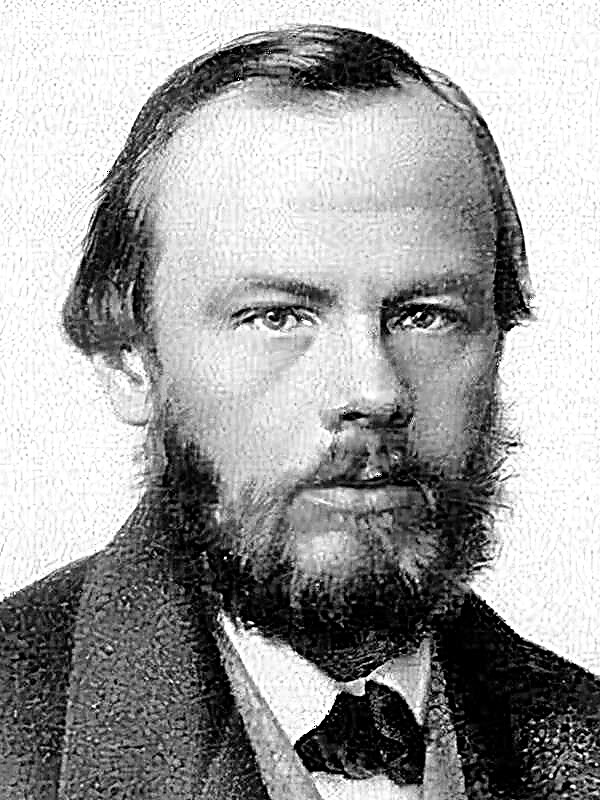
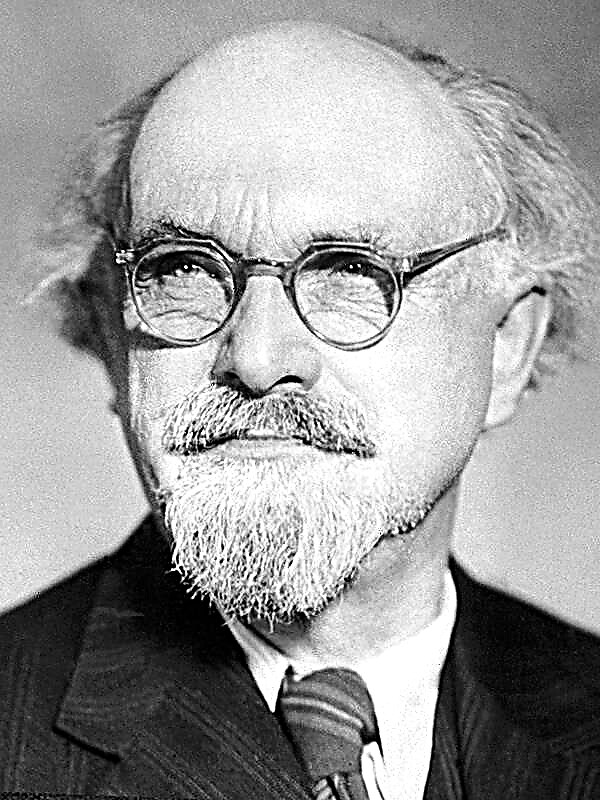
 Two Ivan
Two Ivan